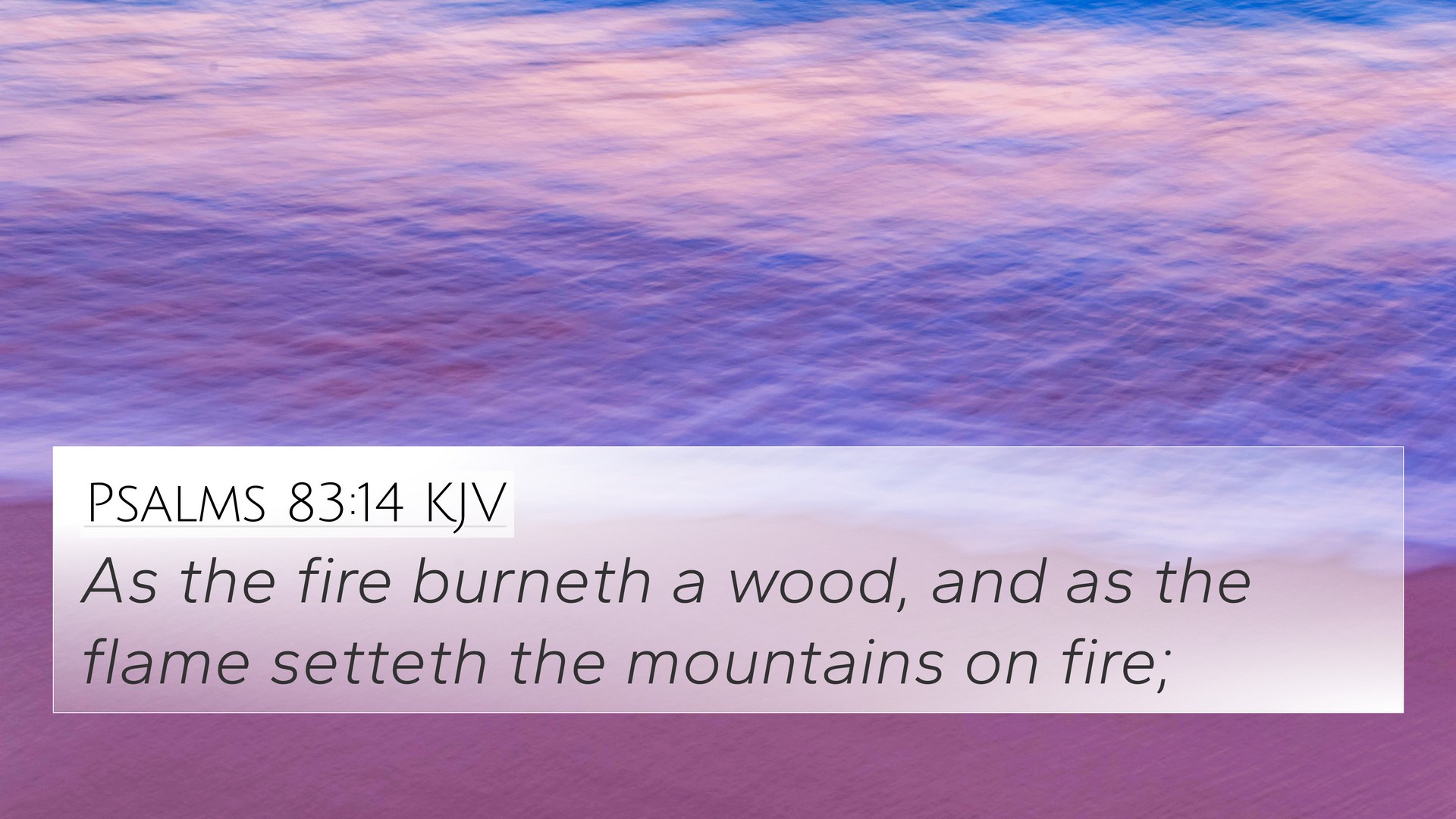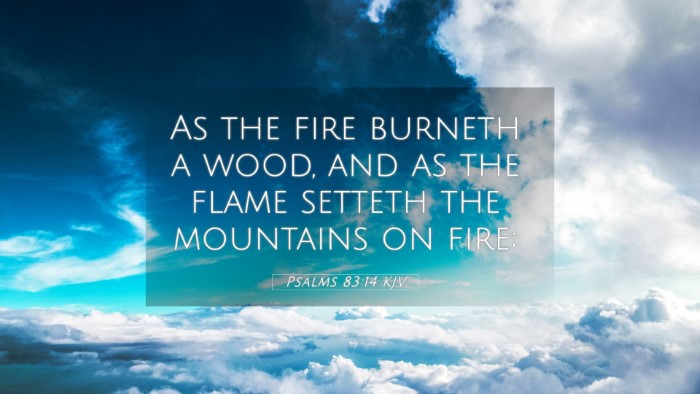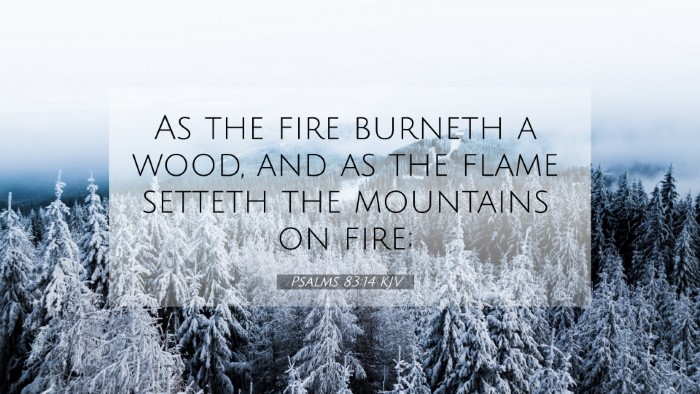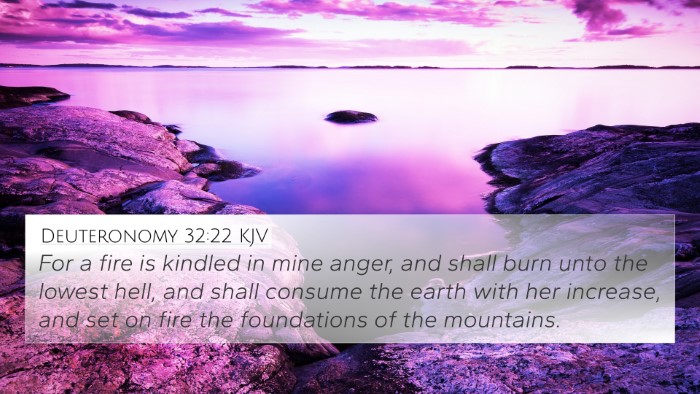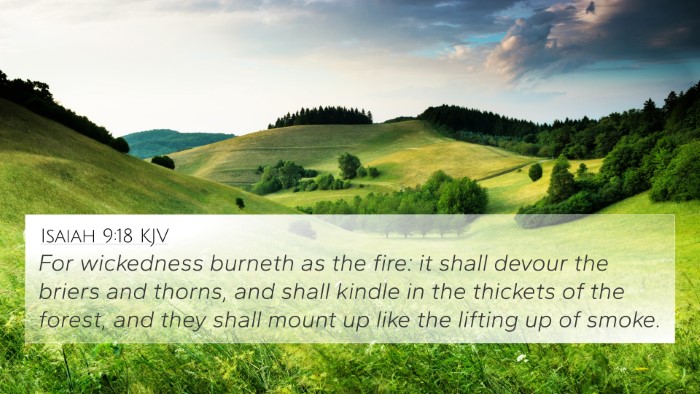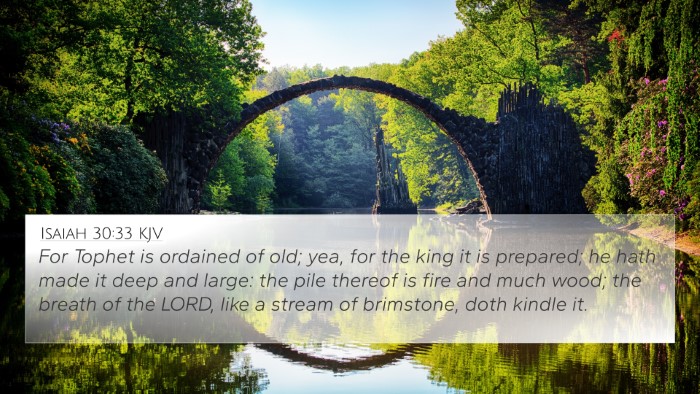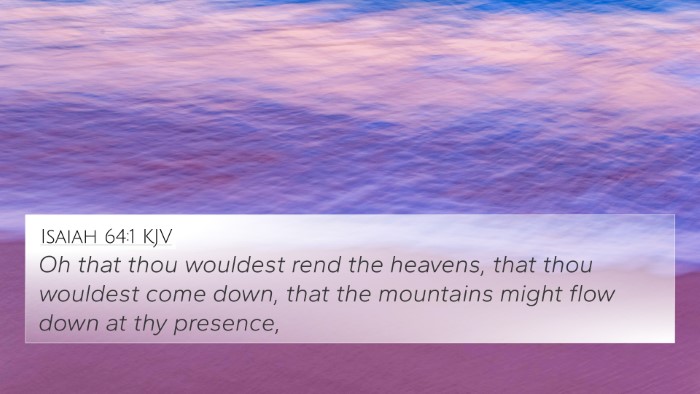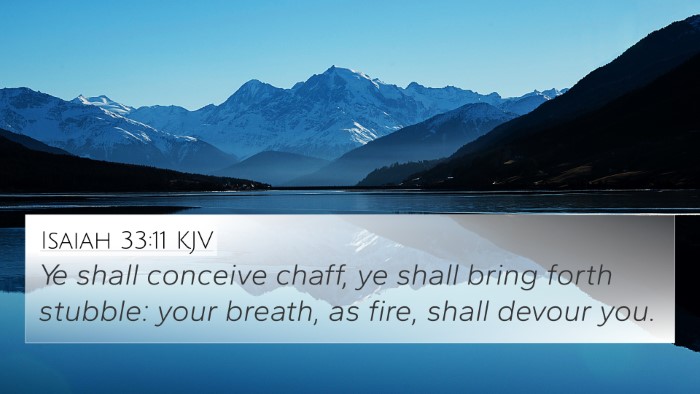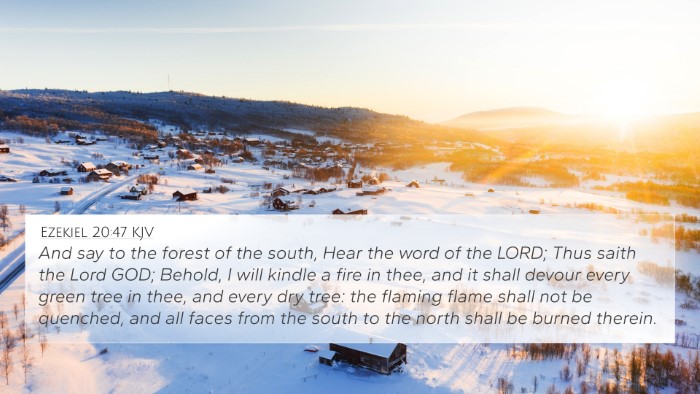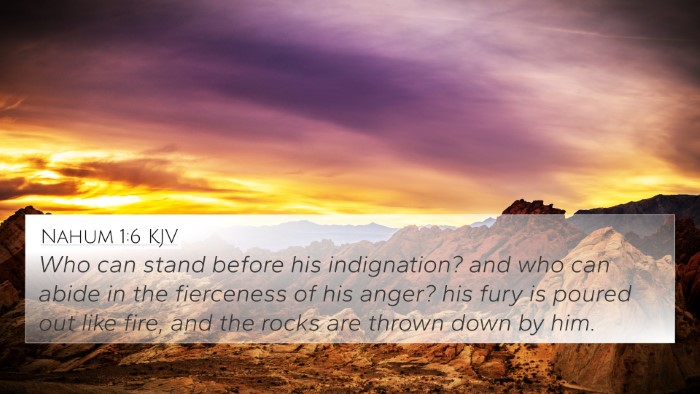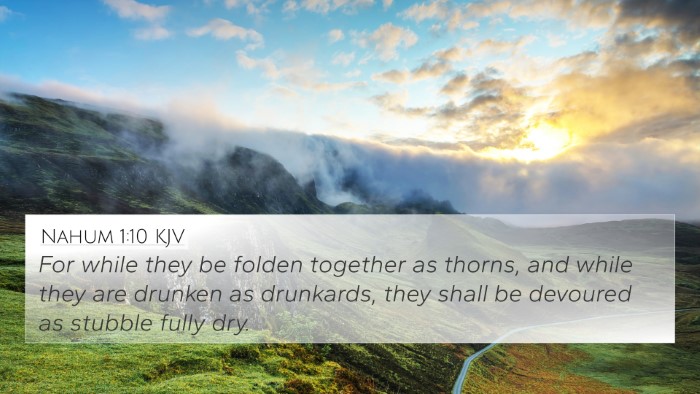Understanding Psalms 83:14
Bible Verse: Psalms 83:14 - "As the fire burneth a wood, and as the flame setteth the mountains on fire." (KJV)
Verse Summary
Psalms 83:14 employs vivid imagery to convey the destructive power of fire, specifically in the context of God's judgment against His enemies. The comparison to nature highlights both the intensity and the inevitability of divine retribution.
Commentary Insights
This verse is rich in metaphorical language, illustrating how the wrath of God can be likened to a consuming fire. Below, we summarize insights from esteemed public domain commentaries:
-
Matthew Henry:
Henry emphasizes that fire is a potent force representing God's wrath. He interprets the fire as a divine instrument that purifies as well as destroys. It not only consumes but also represents the fervent zeal with which God defends His people against their adversaries.
-
Albert Barnes:
Barnes explains that just as fire destroys wood and consumes mountains, God's judgment will sweep away those who oppose Him. The imagery suggests the swiftness and overwhelming nature of divine justice, reinforcing the idea that nothing stands against God's will.
-
Adam Clarke:
Clarke offers theological insights by connecting the fire in this verse with a broader biblical context of judgment and renewal. He elaborates on how the flames purify those who are righteous while simultaneously bringing an end to the wicked. Clarke also points out how this imagery reflects the spiritual battle between light (good) and darkness (evil).
Connecting Bible Verses
To deepen our understanding, we can explore several Bible verse cross-references that resonate with the themes and imagery of Psalms 83:14:
- Isaiah 10:16-19: This passage speaks of the consuming fire of the Lord's judgment against His enemies, drawing parallels to natural destruction.
- Hebrews 12:29: Here, God is described as a consuming fire, indicating His holiness and the purification process that involves judgment.
- Malachi 4:1: The great day of the Lord is likened to a burning oven, which echoes the themes of fire and destruction against the wicked.
- Psalms 97:3: Indicates that fire goes before the Lord, consuming His enemies, reinforcing the idea of divine retribution similar to that in Psalms 83:14.
- Revelation 20:9: The imagery of fire here emphasizes God's ultimate judgment against Satan and those who oppose Him.
- Numbers 11:1: The fire of the Lord consumed parts of the camp of Israel, reminding us of God’s judgment during the Exodus.
- Deuteronomy 4:24: God is described as a consuming fire in the context of His jealousy and judgment, akin to the metaphor used in Psalms 83:14.
Thematic Connections
The themes of divine judgment, retribution, and purification are prevalent in both the Old and New Testaments. These connections can guide us in thematic Bible verse connections that resonate with the message of Psalms 83:14.
Inter-Biblical Dialogue
In considering cross-referenced themes, we see a clear inter-Biblical dialogue about fire as a symbol of God’s power and judgment. The Scriptures invite readers to contemplate both the consequences of sin and the hope of renewal through divine grace.
Reflective Application
As we study this verse and its cross-references, it is crucial to reflect on the context of our own lives. God’s judgment is as real today as it was during the time of the psalmist, but it is also accompanied by His mercy and love. The imagery encourages believers to remain faithful and to seek righteousness.
Tools for Bible Cross-Referencing
To further explore the connections between Bible verses, consider using tools for Bible cross-referencing such as:
- Bible concordance
- Bible cross-reference guide
- Comprehensive Bible cross-reference materials
- Cross-reference Bible study methods
Conclusion
Psalms 83:14 serves as a powerful reminder of God's judgment and protection. Through the insights gathered from commentaries and various scriptural cross-references, we gain a deeper understanding of how this verse fits within the larger biblical narrative. Emphasizing the importance of both individual reflection and collective study of scripture can enhance our spiritual journeys.
